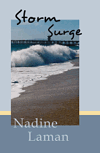Telling vs Showing is a basic skill that the beginning writer should strive to master. Too much telling is boring. It drons along in a monotone voice and doesn't have the momentum to keep the average reader engaged.
One of the best examples of telling a story through showing is Passengers by Diane Keziah Robertson. Diane brilliantly tells the story through the life events of six people who first meet on the coach. She created the setting against the backdrop of the plague in England. Passengers is almost like theatre with the characters coming and leaving [the stage] in a way that advances the overall story.
One way to self-monitor whether you're writing in Telling Mode too much is to look at how much dialogue you've written. Are the characters telling the story through their actions and words? Or is the writer narrating the story in their own voice?
Characters are defined by their words and deeds. When the writer tells who the characters are, it is almost like gossip. Let the characters tell who they are rather than the writer telling about them.
There are times that I call, "Meanwhile, back at the ranch," when the writer needs to tell some short bit that transitions the characters to a different setting or introduces benigning information that will be important at some later point.
Here is a benign piece of information: He reached for the handrail when step unexpectly gave under his weight.
Basically, who cares? I don't, unless that loose step or handrail plays a role later in the story. Don't go on and on about how many times he had planned to fix the step. Who cares? Not me.
What I will care about is later, when he pulls up the end missing nails and stashes something under the step tread while someone is pursuing him. In this case, the broken step needs to be in the setting earlier so it can be used later. Please, please don't introduce it when you need it by saying, "He suddenly remembered..." It feels like a cheat.
Read your work out loud so you hear it out loud. Reading to yourself in your mind allows for skimming and self-correcting words in your thoughts, but not in the ms because you didn't notice them.
Reading aloud also shines a bright light on long rants of telling. It will scream "BORING!" as you drone along reading it out loud.
Here is a writing exercise that helps with too much telling. Write a hundred or so pages in first person. It forces you to only write what the person knows, experiences, thinks, or says. If the main character is telling the story, that is all the writer can use. No magical fixes.
Honestly, if I can't get through the three chapter submission, then I won't ask for the full ms unless Judith wants it. Submit your best work, whether it is to us or someone else. You owe it to yourself and your story.
Passengers is here:
http://www.cactusrainpublishing.com/passengers.html
One way to self-monitor whether you're writing in Telling Mode too much is to look at how much dialogue you've written. Are the characters telling the story through their actions and words? Or is the writer narrating the story in their own voice?
Characters are defined by their words and deeds. When the writer tells who the characters are, it is almost like gossip. Let the characters tell who they are rather than the writer telling about them.
There are times that I call, "Meanwhile, back at the ranch," when the writer needs to tell some short bit that transitions the characters to a different setting or introduces benigning information that will be important at some later point.
Here is a benign piece of information: He reached for the handrail when step unexpectly gave under his weight.
Basically, who cares? I don't, unless that loose step or handrail plays a role later in the story. Don't go on and on about how many times he had planned to fix the step. Who cares? Not me.
What I will care about is later, when he pulls up the end missing nails and stashes something under the step tread while someone is pursuing him. In this case, the broken step needs to be in the setting earlier so it can be used later. Please, please don't introduce it when you need it by saying, "He suddenly remembered..." It feels like a cheat.
Read your work out loud so you hear it out loud. Reading to yourself in your mind allows for skimming and self-correcting words in your thoughts, but not in the ms because you didn't notice them.
Reading aloud also shines a bright light on long rants of telling. It will scream "BORING!" as you drone along reading it out loud.
Here is a writing exercise that helps with too much telling. Write a hundred or so pages in first person. It forces you to only write what the person knows, experiences, thinks, or says. If the main character is telling the story, that is all the writer can use. No magical fixes.
Honestly, if I can't get through the three chapter submission, then I won't ask for the full ms unless Judith wants it. Submit your best work, whether it is to us or someone else. You owe it to yourself and your story.
Passengers is here:
http://www.cactusrainpublishing.com/passengers.html

 When Paul Fenton stops for breakfast in a small town, he gets more than he bargained for in the process.
When Paul Fenton stops for breakfast in a small town, he gets more than he bargained for in the process.
 When two-hundred-year-old human remains are discovered on one of Neptune's moons, Earth's history falls into question.
When two-hundred-year-old human remains are discovered on one of Neptune's moons, Earth's history falls into question.
 Emily's husband persuades her to try thalidomide to ease her symptoms as she is unaware of the devastating effects.
Emily's husband persuades her to try thalidomide to ease her symptoms as she is unaware of the devastating effects.
 Who is the women's shelter bomber? Melissa Ryan suspects that her husband knows.
Who is the women's shelter bomber? Melissa Ryan suspects that her husband knows.
 Further developments with the Wilder family.
Further developments with the Wilder family.
 A hidden past shakes the O'Donovan family to its core
A hidden past shakes the O'Donovan family to its core
 A swirl of emotion and choice, set in Cape Town, South Africa
A swirl of emotion and choice, set in Cape Town, South Africa
 Love is a constant, but it comes at a price.
Love is a constant, but it comes at a price.
 When the road ahead is unclear, sometimes you have to rely on trust.
When the road ahead is unclear, sometimes you have to rely on trust.
 The struggle between good and evil is ages old. It gets all the more complicated when the good guys aren't all good and the bad guys have redeeming qualities.
The struggle between good and evil is ages old. It gets all the more complicated when the good guys aren't all good and the bad guys have redeeming qualities.
 Story of a land mothering two races of people – the light-skinned and the dark-skinned.
Story of a land mothering two races of people – the light-skinned and the dark-skinned.
 A gifted Ukrainian ballerina comes into possession of a mysteriously coded address book.
A gifted Ukrainian ballerina comes into possession of a mysteriously coded address book.
 Six passengers' lives change for better or worse after they arrive in Honiton.
Six passengers' lives change for better or worse after they arrive in Honiton.
 Resilience and love in a harsh and unforgiving age
Resilience and love in a harsh and unforgiving age
 Kathryn's Beach
Kathryn's Beach High Tide
High Tide Storm Surge
Storm Surge
Too true! Showing not telling is the number one skill to master :)
ReplyDelete